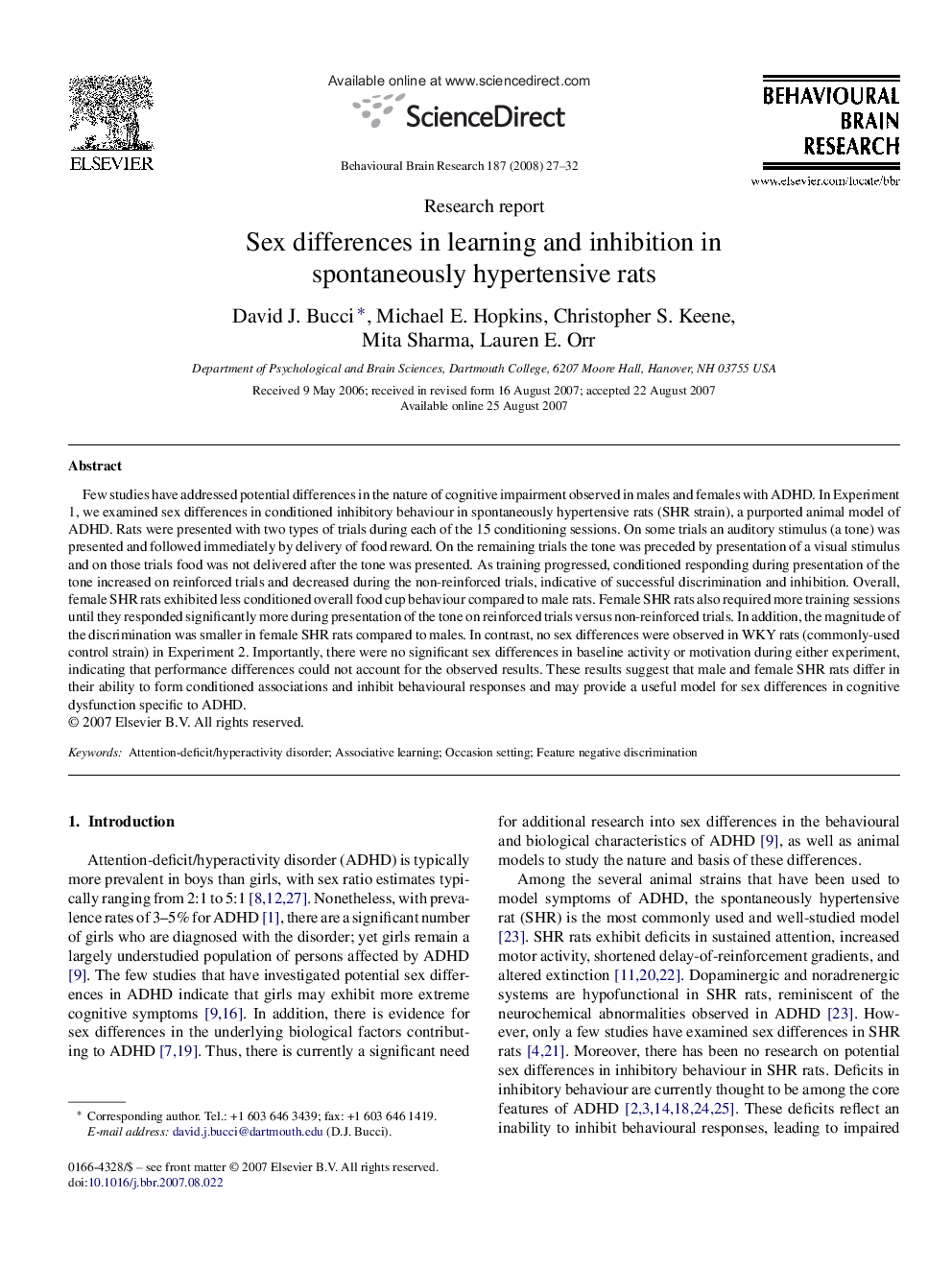| Article ID | Journal | Published Year | Pages | File Type |
|---|---|---|---|---|
| 4315343 | Behavioural Brain Research | 2008 | 6 Pages |
Few studies have addressed potential differences in the nature of cognitive impairment observed in males and females with ADHD. In Experiment 1, we examined sex differences in conditioned inhibitory behaviour in spontaneously hypertensive rats (SHR strain), a purported animal model of ADHD. Rats were presented with two types of trials during each of the 15 conditioning sessions. On some trials an auditory stimulus (a tone) was presented and followed immediately by delivery of food reward. On the remaining trials the tone was preceded by presentation of a visual stimulus and on those trials food was not delivered after the tone was presented. As training progressed, conditioned responding during presentation of the tone increased on reinforced trials and decreased during the non-reinforced trials, indicative of successful discrimination and inhibition. Overall, female SHR rats exhibited less conditioned overall food cup behaviour compared to male rats. Female SHR rats also required more training sessions until they responded significantly more during presentation of the tone on reinforced trials versus non-reinforced trials. In addition, the magnitude of the discrimination was smaller in female SHR rats compared to males. In contrast, no sex differences were observed in WKY rats (commonly-used control strain) in Experiment 2. Importantly, there were no significant sex differences in baseline activity or motivation during either experiment, indicating that performance differences could not account for the observed results. These results suggest that male and female SHR rats differ in their ability to form conditioned associations and inhibit behavioural responses and may provide a useful model for sex differences in cognitive dysfunction specific to ADHD.
